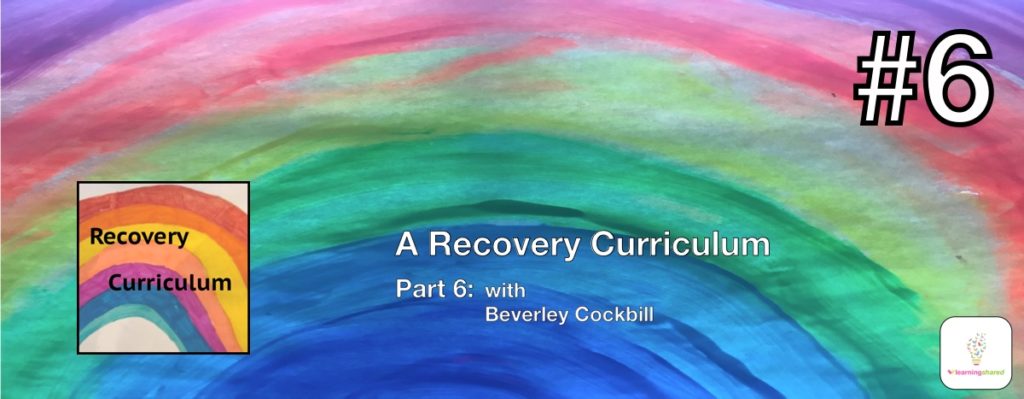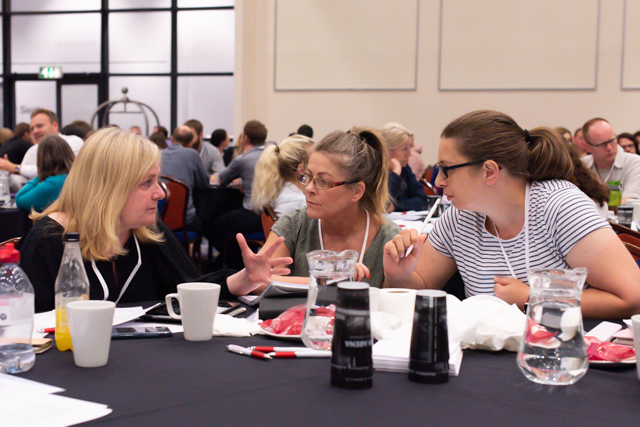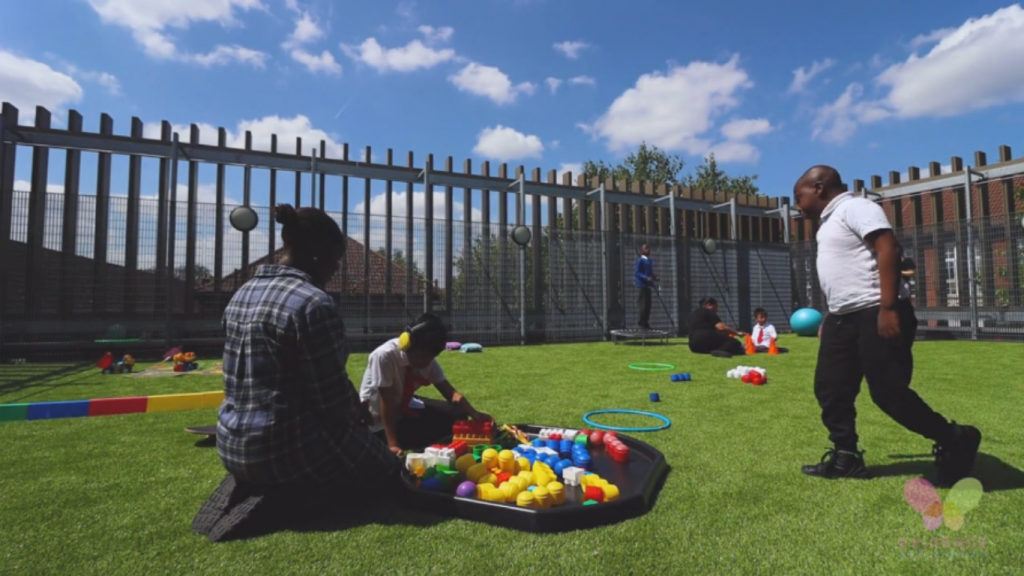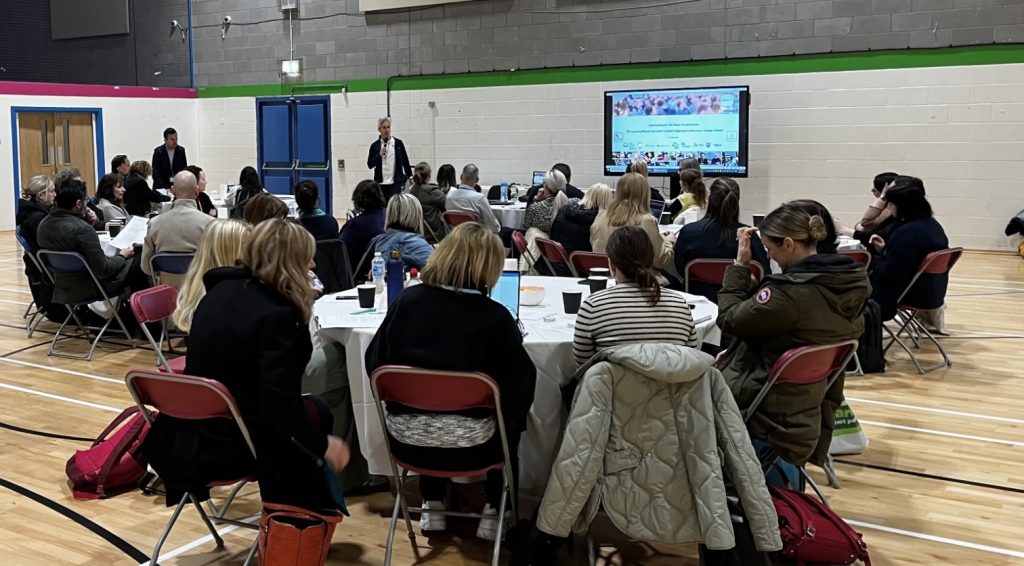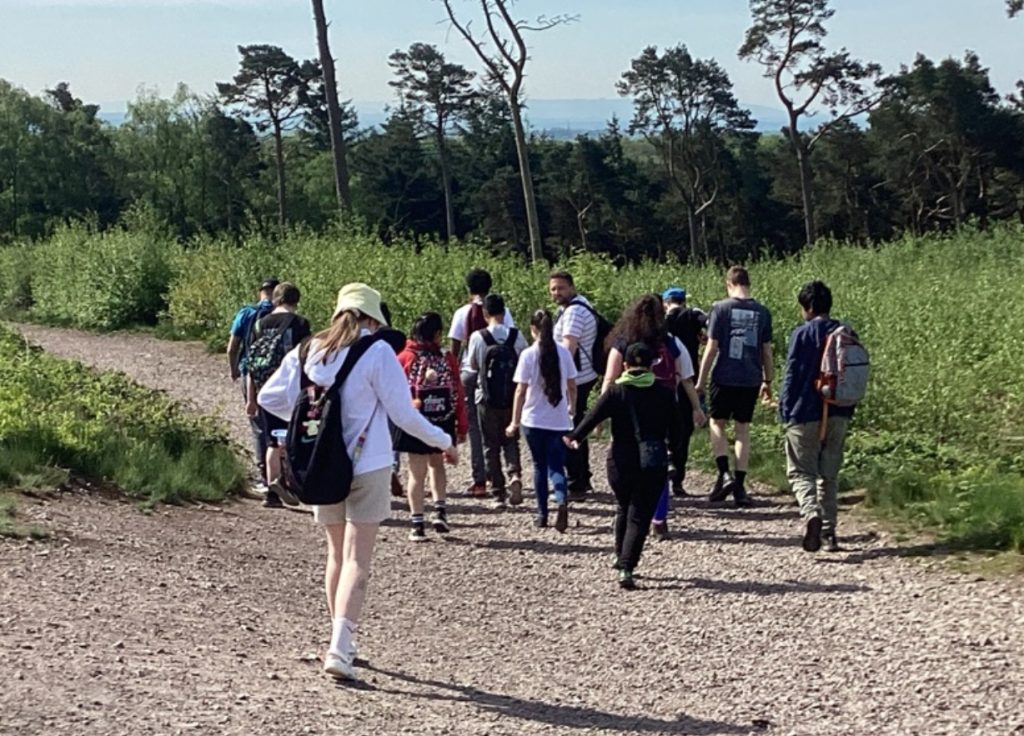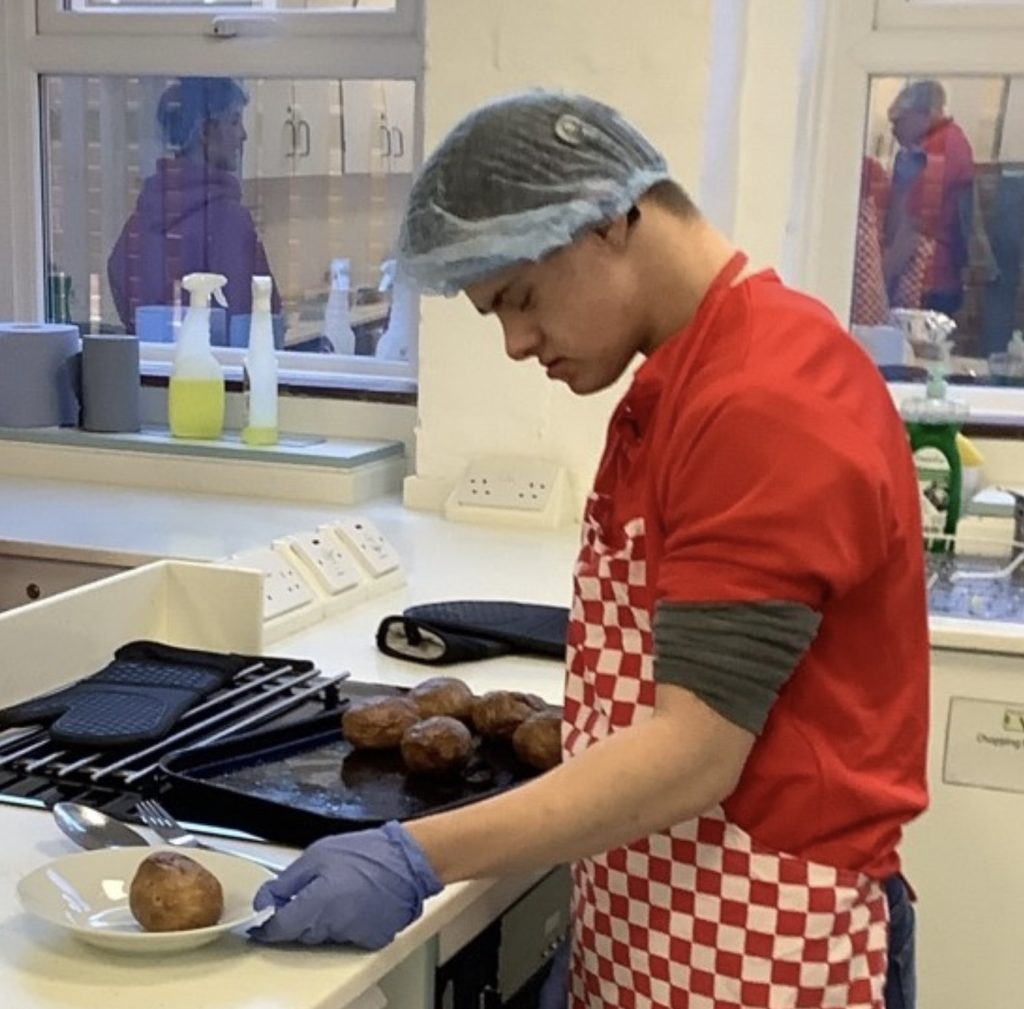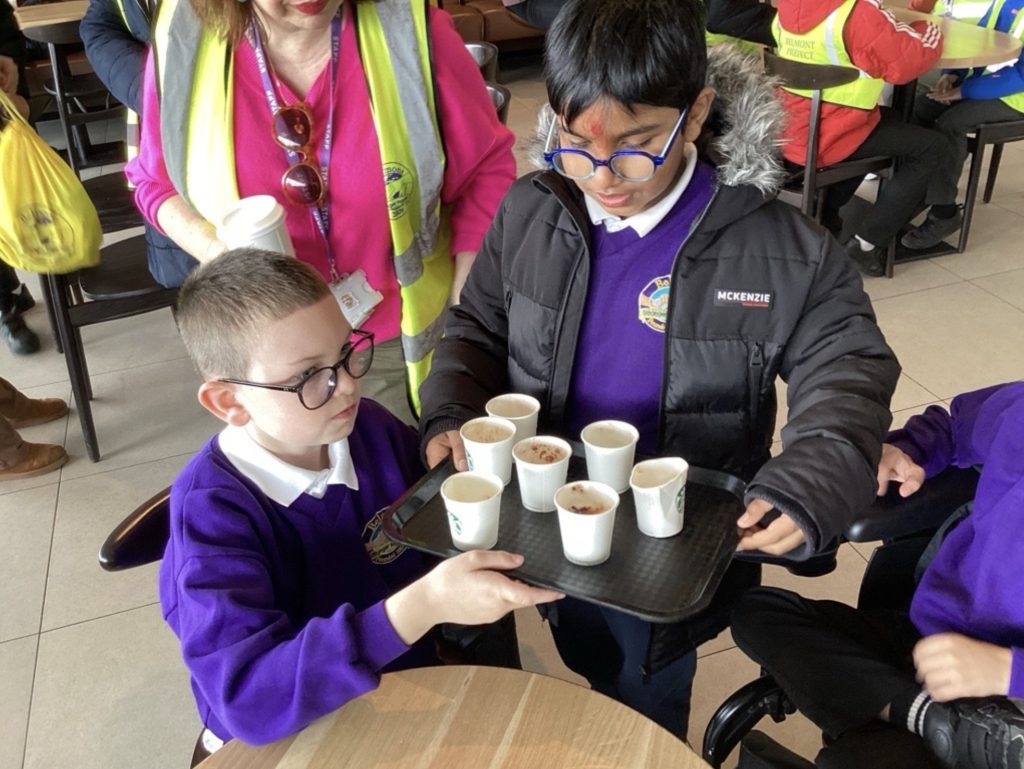In this episode Professor Barry Carpenter interviews Beverley Cockbill, who has extensive experience of children with Complex Needs through her research and practice, especially in relation to the Engagement Model.
Bev describes how engagement is key to effective teaching and learning for this group of pupils, and how it provides a lens through which the teacher can guide the child to positive learning outcomes.
Part of Bev’s role is working with disengaged, out of school pupils, and she reflects on how the principles expressed in the Recovery Curriculum can help to re-engage those children to reduce their stress and self-regulate their emotions. Using her wealth of experience in mental health she particularly articulates how Happiness Boxes (see fact sheet downloadable below) can be used in a versatile way in a variety of settings by families, as well as teachers, to support vulnerable young people.
Bev picks out the Transparent Curriculum from the 5 Levers, for the opportunity it offers to co-construct the curriculum with the child and its family, as the child begins to reconnect with school and begin the process of recovery. Space, also one of the 5 Levers: she also sees as crucial to the child with Autism or behavioural difficulties, as they explore again their self-concept and emotional regulation in their learning setting.
‘Happiness Boxes’
Here is a how to make a Happiness Box, with a sound rationale for doing so. Written by Barry Carpenter and Bev Cockbill this step by step guide is perfect for welcoming children and young people back to school, or for home learning. In either contexts it enables the child to build their emotional resilience, and self regulate their emotional well being.
Rationale for the Happiness Box and how to make it (PDF Copy)
‘Social Stories’
Here are some examples of the ‘Social Stories’ that Bev Cockbill refers to in Episode 7.
Examples of ‘Social Stories’ (PDF Copy)
Inquiring Minds article (referred to in this episode)
Mental Wealth Journals article in SEND magazine – Bev Cockbill & Jo Egerton (PDF Copy)
About Beverley Cockbill
Bev is a Complex Learning Needs Co-ordinator/Specialist Teacher for Chadsgrove School Support Services CCN (Communication Complex Needs) Team. School Support Services contributes to a school driven self-improvement model, which can lead to significant improvements in pupil outcomes.
Bev is a Training Co-ordinator in complex learning needs. Previously, she worked for SSAT (The Schools Network) Ltd as Training Coordinator for complex learning needs and as a Research and Development Assistant on the Department for Education-funded (CLDD) Complex Learning Difficulties and Disabilities Research Project. In addition, Bev has been an Assistant Teacher and Structured Teaching Advisor/Trainer within a residential school offering 38/42-week education and 52-week care to children aged 6–19 years with severe and complex learning disabilities and autistic spectrum disorder.
Bev lectures and delivers training for children and for adults with complex learning difficulties and disabilities in schools and care provision across the UK and internationally. She has published a range of articles, and contributed to the ‘Training Materials for Teachers of Learners with Severe, Profound and Complex Learning Difficulties’ at www.complexneeds.org.uk
She is co-author of the acclaimed book (with Barry Carpenter and Jo Egerton et al) on Educating Leaners with Complex Learning Difficulties and Disabilities, (Routledge, 2015)
Bev was a co-founder of the Engagement4Learning website:
Bev has worked in the field of special educational needs for the last 20 years.
Chadsgrove School
https://www.chadsgroveschool.org.uk/web
Engagement for Learning/E4L website
Barry Carpenter’s website
https://barrycarpentereducation.com
More info on the Recovery Curriculum
For information on the Recovery Curriculum, including the original Think Piece entitled “A Recovery Curriculum: Loss and Life for our children and schools post pandemic”, lectures, resources, reference materials and details of the online communities of practice, visit:
http://www.recoverycurriculum.org
Join the conversation about The Recovery Curriculum:
Clearly any form of Recovery Curriculum will need to be unique to each and every school, contextualised to the ethos, culture and values of that school, as well as its existing curriculum and crucially reflecting and addressing the needs and aspirations of its unique population of learners.
We have created private groups in LinkedIn and Facebook where colleagues and peers can discuss and share thoughts, ideas, experiences, resources and learning in relation to education and provision post pandemic. The groups are also an opportunity to connect people and help you to build a network that can support you on your own important journey over the coming months.
Facebook Group: Recovery Curriculum
We’ve set up a private facebook group specifically for The Recovery Curriculum at:
https://www.facebook.com/groups/recoverycurriculum
or search for “recoverycurriculum” in Facebook.
Facebook: EfL SEND Community Group
Join us at:
https://www.facebook.com/groups/eflSENDCommunity/
or search for “eflSENDCommunity” in Facebook.
The purpose of the group is to provide a safe, closed space to seek out and share ideas, experience and resources that can help with any and all aspects of SEND provision. It’s also a community for practitioners and schools that use Evidence for Learning and Insights for Learning to share ideas, resources and support each other in using these apps. This is a peer-moderated and supported group.
Linkedin Group: The Recovery Curriculum
The group is called “A Recovery Curriculum for children & schools post-pandemic” and you can find it at:
